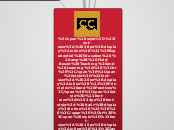
Experiential Education & Field-Based Teaching and Learning:
Principles and Practices
Jay Roberts, Ph.D.
Earlham College
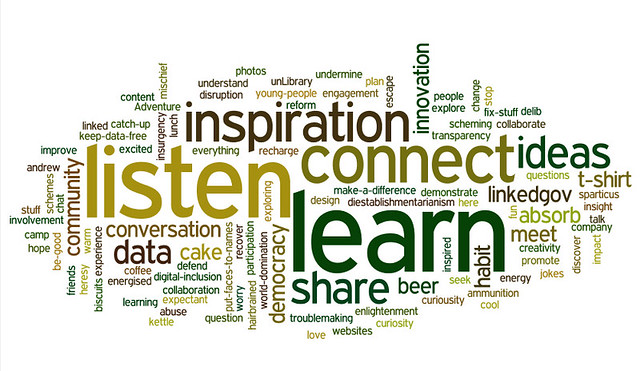
Introductions and Overview
Day 1 Workshop Overview
Putting Experiential Learning in Context
Defining Experiential Education
Methodologies of Experiential Education
Design and Experiential Education
Day 2 Workshop Overview
Facilitating Experiential Education
Assessment and Evaluation of Experiential Education
Final Reflections
Introductions
Mihi Mihi
More about you
More about me
More about us
Pairs: what would you like to learn, do, and come away with?
Paradigms...

Experiential Education: Why It Matters in a World of Seismic Disruption

Feb. 22, 2011 Christchurch Earthquake
Out of the rubble...
Stasis

Pedagogical Disruptors
Instruction vs Learning


Barr and Tagg


High Impact Learning Practices (AAC&U, 2008)
Learning communities
Collaborative assignments and projects
Service learning, community based learning
Undergraduate research
Internships and project-based learning
Diversity/global learning
Immersion experiences

Gallup Poll "Big 6"
1. A professor who excited me about learning
2. Professors who cared about me as a person
3. A mentor who helped me pursue my goals and dreams
4. Work on a project that took a semester or more to complete
5. Internship or job that allowed me to apply my learning
6. Extremely active in extracurricular activities and organizations
3% agreed to all 6.

Technological Disruptors

MOOC's!
Stanford’s Sebastian Thrun made headlines in the fall of 2011 when his on-line Artificial Intelligence course enrolled over 160,000 students. According to the New York Times (“Harvard and MIT Team Up To Offer On-Line Classes,” May 2, 2012)

The University of Nowhere
‘Place-based colleges’ are good for parties, but are becoming less crucial for learning thanks to the Internet, said the Microsoft founder Bill Gates at a conference on Friday.
Five years from now on the Web for free you’ll be able to find the best lectures in the world. It will be better than any single university,” he argued at the Techonomy conference in Lake Tahoe, Calif. “College, except for the parties, needs to be less place-based.”
from: http://chronicle.com/blogs/wiredcampus/bill-gates-predicts-technology-will-make-place-based-colleges-less-important-in-5-years/26092
Facebook Story: if someone from the 1950's suddenly appeared, what would be the most difficult thing to explain to them about life today?
I possess a device, in my pocket, that is capable of accessing the entirety of information known to humankind.
And I use it to look at funny videos of cats

Epistemological Disruptors

Emerging Neuroscience of Learning
Social
Experiential
Multi-modal
Emotion
Pattern
Relevance
Reflection

Importance of student-centered exploration FIRST
STANFORD STUDY
"The study involved 28 undergraduate and graduate students as participants, none of whom had studied neuroscience. After being given an initial test, half of the group read about the neuroscience of vision, while the others worked with BrainExplorer. When tested after those respective lessons, the performance of participants who used BrainExplorer increased significantly more – 30 percent – than those who had read the text.
Next the researchers had each of the two groups do the other learning activity: Those who had used BrainExplorer read the text, while those who had read the text used BrainExplorer. All the participants then took another test, and the findings revealed a 25-percent increase in performance when open-ended exploration came before text study rather than after it. (A follow-up study showed identical results for video classes instead of text.)
“We are showing that exploration, inquiry and problem solving are not just ‘nice to have’ things in classrooms,” said Blikstein. “They are powerful learning mechanisms that increase performance by every measure we have.” Pea explained that these results indicate the value for learning of first engaging one’s prior knowledge and intuitions in investigating problems in a learning domain – before being presented with abstracted knowledge. Having first explored how one believes a system works creates a knowledge-building relevance to the text or video that is then presented, he said."
http://blogs.kqed.org/mindshift/2013/07/before-reading-or-watching-videos-students-should-first-experiment/
National Academies (2005). "Facilitating Interdisciplinary Research." Four drivers...
Inherent complexity of nature and society
The desire to explore problems and questions that are not confined to a single discipline
The need to solve social problems
The need to produce revolutionary insights and generative technologies
American Academy for the Advancement of Science:
“As biology faculty, we need to put the “depth versus breadth” debate behind us. It is true today, and will be even more so in the future, that faculty cannot pack everything known in the life sciences into one or two survey courses. The advances and breakthroughs in the understanding of living systems cannot be covered in a classroom or a textbook. They cannot even be covered in the curriculum of life sciences majors. A more tenable approach is to recast the focus of biology courses and curricula on the conceptual framework on which the science itself is built and from which discoveries emerge. Such a focus is increasingly interdisciplinary, demands quantitative competency, and requires the instructor to use facts judiciously as a means of illustrating concepts rather than as items to be memorized in isolation.
The time has come for all biology faculty, but particularly those of us who teach undergraduates, to change the way we think about teaching and begin to develop a coordinated and sustainable plan for implementing sound principles of teaching and learning." (2009)

Socio-Economic Disruptors
Global Recession
"Neo-Liberal" Academy
Market, ROI, Outcomes, Accountability, Value Proposition
College-to-Career focus
Affordability and Attendance
College Attendance: "In 1960, 392,000 students earned bachelor degrees. By 2007 that number had nearly quadrupled to 1.52 million."(Ferrall, 2011)
"In 2009, spending by Americans for post-secondary education totaled $461 billion, an amount 42% greater than in 2000, after accounting for inflation. This $461 billion is the equivalent of 3.3% of total U.S. gross domestic product (GDP) and an amount greater than the total GDP of countries such as Sweden, Norway and Portugal."
From: http://www.cnn.com/2011/12/02/opinion/vedder-college-costs/index.html
The credit crisis (student loan debt in US exceeds total credit card debt for first time in 2012)
Generation "Z"

Ages 5-18
"Likes"
Hands-on learning
Real world experience
Professional opportunity
Small class sizes
Personal connections

Meeting the Challenge?
"In survey after survey, employers seem to agree that the skill they most want in future workers is adaptability. Those who hire complain that they often find today’s college graduates lacking in interpersonal skills, problem solving, effective written and oral communication skills, teamwork, and the ability to think critically and analytically."
From: http://chronicle.com/blogs/next/2012/09/12/skills-gap-employers-and-colleges-point-fingers-at-each-other/
UNPREPARED?

Just over one-third of college faculty surveyed in 2007 strongly agreed that their campus actively promotes awareness of US or global social, political, and economic issues.
Only one-third of college students surveyed strongly agreed that their college education resulted in increased civic capacities.
ANEMIC SENSE OF PUBLIC SERVICE?

UNENGAGED?


With modern technology, if all there is is lectures, we don't need faculty to do it," Redish says. "Get 'em to do it once, put it on the web, and fire the faculty."
from: http://americanradioworks.publicradio.org/features/tomorrows-college/lectures/rethinking-teaching.html

A World of "Wicked" Problems

Climate Change

Income Inequality

Zika/Global Health

Terrorism

Water Rights

Racism, Hyper-Nationalism, Xenophobia
Solvable by any one discipline?
"Easily" solvable?
The world is full of complex, unscripted problems where the answers are not immediately known and the consequences matter.
Wicked Problems
Contested and Complex
Dispersed responsibility and power
High potential for unforeseen consequences
Uncertain, unclear data
Time stress

Does our current educational system prepare students to work in these kinds of contexts?
as
"By using the phrase “disrupting ourselves” ... I am asserting that one key source of disruption in higher education is coming not from the outside but from our own practices, from the growing body of experiential modes of learning, moving from margin to center, and proving to be critical and powerful in the overall quality and meaning of the undergraduate experience. As a result, at colleges and universities we are running headlong into our own structures, into the way we do business." (Bass, 2012)
"These pressures are disruptive because to this point we have funded and structured our institutions as if the formal curriculum were the center of learning, whereas we have supported the experiential co-curriculum (and a handful of anomalous courses, such as first-year seminars) largely on the margins, even as they often serve as the poster children for the institutions’ sense of mission, values, and brand. All of us in higher education need to ask ourselves: Can we continue to operate on the assumption that the formal curriculum is the center of the undergraduate experience?" (Bass, 2012)

Transformation
"We all know or sense that the academy today is in the throes of transformation. The knowledge, skills, and values in which students should be educated; the intellectual landscape of the disciplines and degrees; the ways in which educational institutions are organized; the funding of teaching, learning, and research-- all of this promises to be profoundly different in 20 years. The forces of change have resulted partly from our own inertia, partly from consequences of our success, and partly from broad political, market, and technological developments not of our making. The question is not whether the academy will be changed, but how." (Scobey, 2012)
Purpose Learning
Stanford d.school

The Real Work
Final Reflections and Takeaways
It may be that when we no longer know what to do
we have come to our real work,
and that when we no longer know which way to go
we have come to our real journey.
The mind that is not baffled is not employed.
The impeded stream is the one that sings.
~ Wendell Berry

Facilitation and Experiential Education

Principles of Facilitation

Framing and Tone Setting
Sense of invitation
Make outcomes relevant and overt
Set clear expectations
Gradient

Zone of Proximal Development
Social Context
Are they ready?
Relationships 101
Full-Value Contracts
Collaboration skills

Processing
On-going (not just at end of experience)
Iterative feedback and formative assessment
What? So What? Now What?
Kindling, big logs, and progressions
Multi-modal
Cognitive
Intrapersonal
Interpersonal
Multi-modal Pt 2
Verbal/Oral
Written
Meta-assignments
POL's
Digital Storytelling
Social media!
Gallery walks

Group Dynamics and Management
Stages


Waterline Model
Interventions
Head Toward Trouble
Differentiation
Models
Continue, Start, Stop
Gems and Opportunities
Plus, Delta (Roses and Thorns, Apples and Onions)
Peer/group feedback
Return to First Principles
Be prepared for failure
What are your outcomes?
Fail forward
Grit, adaptation, resilience

Q and A/Discussion

Day Two!
Overview
Design and EE
Facilitating Experiential Education
Assessment and Evaluation of Experiential Education
Final Reflections

Warm-Ups
Paired share progression
Dinner
Something from yesterday
Define EE?
A memorable edu design moment

Design and Experiential Education

Common Characteristics of EE

Experiential Learning Cycle
Experience before Label
"Messy"
John Dewey's "Indeterminate Situation"
Ambiguity, unpredictability, and uncertainty
"Fail Fast" or "Fail Forward" orientation
Risk
Authenticity-- of product/task and audience

Introduction to Experiential Design
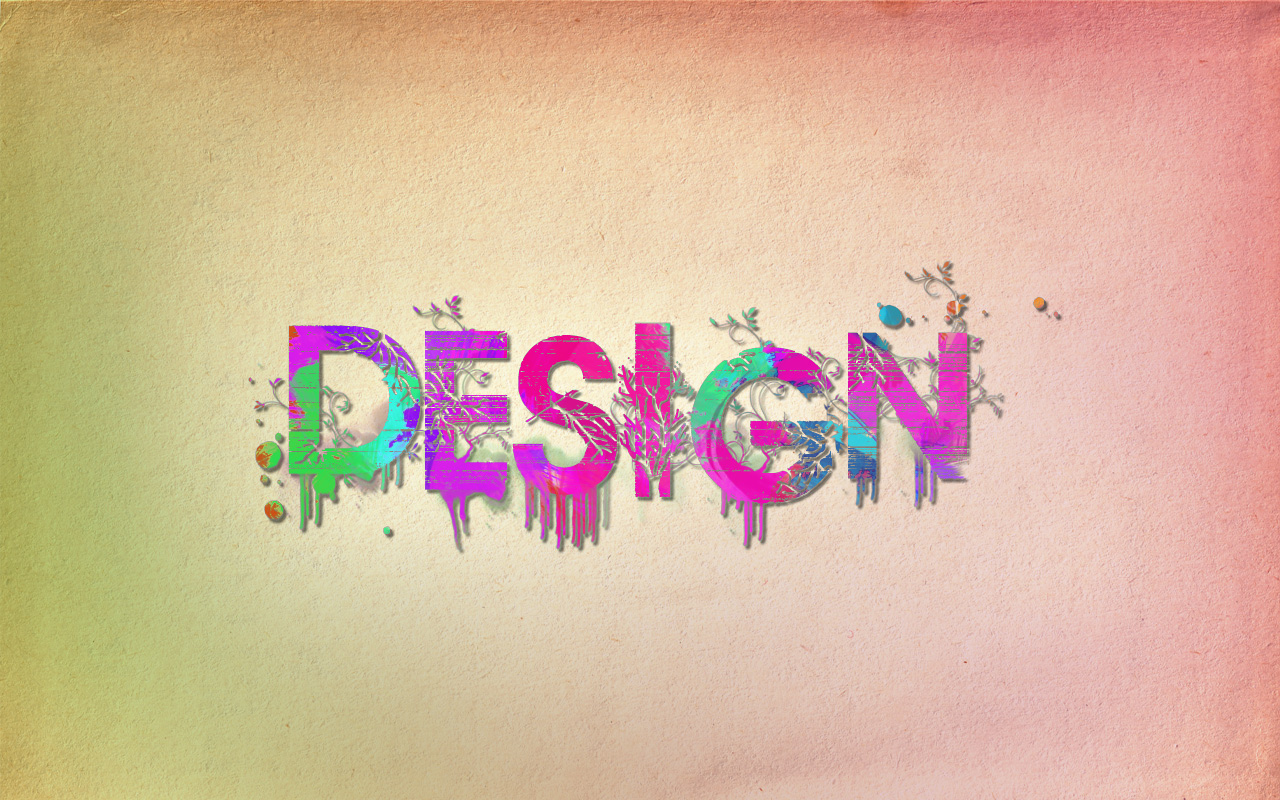
Design and Experiential Education
JFK LBJ ON TV FBI
Key General Principles
No "one best way"
UbD
Activity Trap
Grading Trap
Trivial Trap

Crawford's "Build-A-Bear" Analogy
What are the enduring understandings?
Go Big! Go Small!
Design for Significant/High Impact Learning
Chunking and stages
IBFVTNOJBLKFJ

Two Basic Design Frames to Consider
EELDRC
Fink- Integrated Course Design

Integrated Course Design
EELDRC
Can happen at any scale: micro, meso, macro
ENROLL: The importance of framing
EXPERIENCE: Experience Before Label!
LABEL: Punctuated direct instruction
DEMONSTRATE: Practice through content
REVIEW: Multiple opportunities for feedback and reflection
CONNECT: On-ramping with other content, experiences
Pairs: EELDRC how to tie a shoe...
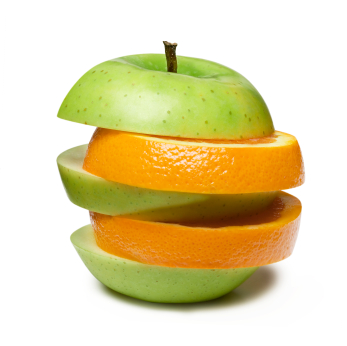
Integrated Course Design


Situational Factors
How many students?
What level? Where does it fit in sequencing of curriculum?
What is special instructional challenge of this course?
Nature of subject?
Theoretical, practical?
Convergent or divergent?
What is expected of the course by the students? the department? the institution?
How does this course fit into larger curricular context?

Learning Goals
"Significant Learning" as opposed to "Understand and Remember"

Significant Learning

Feedback and Assessment
"Assessment is a process by which information is obtained relative to some known objective or goal. Assessment is a broad term that includes testing. A test is a special form of assessment. Tests are assessments made under contrived circumstances especially so that they may be administered. In other words, all tests are assessments, but not all assessments are tests."
http://www.adprima.com/measurement.htm
How do we know what we are doing is working?
"Formative assessment refers to a wide variety of methods that teachers use to conduct in-process evaluations of student comprehension, learning needs, and academic progress during a lesson, unit, or course. ... In other words, formative assessments are for learning, while summative assessments are of learning."
www.edglossary.org
"A rubric is a scoring tool that explicitly represents the performance expectations for an assignment or piece of work. A rubric divides the assigned work into component parts and provides clear descriptions of the characteristics of the work associated with each component, at varying levels of mastery."
https://www.cmu.edu/teaching/designteach/teach/rubrics.html
What will the students have to do, to demonstrate that they have achieved the learning goals?
Authentic Assessment (Wiggins and McTighe)
Realistically contextualized
Requires judgement and innovation
Asks students to "do" the subject
Replicates challenging "real life" situations
Asks students to integrate across KSA's (not isolate)
Discrete lessons are made meaningful toward mastery
Allows opportunities to rehearse, practice, get feedback, and refine
"A student portfolio is a compilation of academic work and other forms of educational evidence assembled for the purpose of (1) evaluating coursework quality, learning progress, and academic achievement; (2) determining whether students have met learning standards or other academic requirements for courses, grade-level promotion, and graduation; (3) helping students reflect on their academic goals and progress as learners; and (4) creating a lasting archive of academic work products, accomplishments, and other documentation."
http://edglossary.org/portfolio/
Digital Dumping Ground
Skill, competency specific
Development within a course
Project-based (multiple classes)
Reflection-oriented/transfer
Capstone
Backward-Looking Assessment
Constructed to determine whether students "got" the material
Forward-Looking Assessment
Constructed to determine whether students are ready for some future activity, after the current period of learning is over

Teaching and Learning Activities
Experiential
Active Learning
CBL
PBL
Integrative Learning

Integration
Are the learning activities consistent with the learning goals?
Are the feedback and assessment strategies consistent with the learning goals and activities?
What is extraneous? What could be amplified?

Final Design Thoughts
Scales
Micro
Meso
Macro
Keep it simple!
Just Get Started
One class, one experience
Don't do more; do different
Go bigger!
An entire unit of a class; a semester project
Program level, unit level, institution-wide
BHAG
Think about assessment in the design itself
Fail fast, fail forward
Groups of 3
Curriculum Workshop
Design challenge?
Dream course?
Tweaking an existing course?

Core Methodologies
Cooperative Jigsaw
Home Groups
Review list of experiential methodologies

EE and Terms
Service Learning
Community-Based Learning
Project or Problem-Based Learning
Game-Based Learning
Active Learning
Cooperative Learning
Place-Based Learning
Inquiry-Based Learning
Which have you employed and how?
Which are you less familiar with and/or have questions about?
Expert Groups
Review handout and definition for your methodology
Come up with ideas or examples of this methodology in practice
Discuss pro's and con's of this methodology
Home Groups
Teach your methodology
As a group-- what further questions or points of discussion do you have at this point?
Active Learning
University of Virginia Bay Game
Community-Based Learning
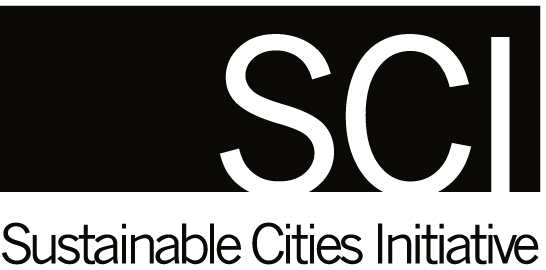
University of Oregon Sustainable Cities Initiative
Integrative Learning

"Just as the measure of a human brain is not in its number of neurons but rather the density of the interconnections between them, so is the long-term value of an education to be found not merely in the accumulation of knowledge or skills but in the capacity to forge fresh connections between them, to integrate different elements from one's education and experience and bring them to bear on new challenges and problems."
Study of Undergraduate Education at Stanford (2012)
Problem-Based Learning
Discussion
Groups of 4

Discussion
Lingering questions?
Take aways?
What would you like to do more of tomorrow?
Looking ahead to tomorrow...
Facilitation and EE
Assessment and Outcomes of EE
Final Discussion and reflection

Defining Experiential Education:

What is Experiential Education?
Is it experiential learning?
Pop Quiz!
A lacrosse coach has students run an offense vs defense scrimmage
A student volunteers at the local food pantry
A chemistry lab
English students role-playing a scene from a novel
A study tour trip to France
A computer-based game/simulation to learn/practice classroom content
A student produced play or drama production
Small group discussions in class
An internship
A student initiated research project

The Experiential Learning Cycle

Experiential education is a philosophy that informs many methodologies in which educators purposefully engage with learners in direct experience and focused reflection in order to increase knowledge, develop skills, clarify values, and develop people's capacity to contribute to their communities.
AEE's Principles
Experiential learning occurs when carefully chosen experiences are supported by reflection, critical analysis and synthesis.
Experiences are structured to require the learner to take initiative, make decisions and be accountable for results.
Throughout the educational process, the learner is actively engaged in posing questions, investigating, experimenting, being curious, solving problems, assuming responsibility, being creative, and constructing meaning.
Learners are engaged intellectually, emotionally, socially, soulfully and/or physically. This involvement produces a perception that the learning task is authentic.
The educator and learner may experience success, failure, adventure, risk-taking and uncertainty, because the outcomes of experience cannot totally be predicted.
The educator's primary roles include setting suitable experiences, posing problems, setting boundaries, supporting learners, insuring physical and emotional safety, and facilitating the learning process.
The design of the learning experience includes the possibility to learn from natural consequences, mistakes and successes.

Discussion
Examples of how you have experienced this (or not?) at CC?
How does this inform our curriculum, our pedagogical designs moving forward?
